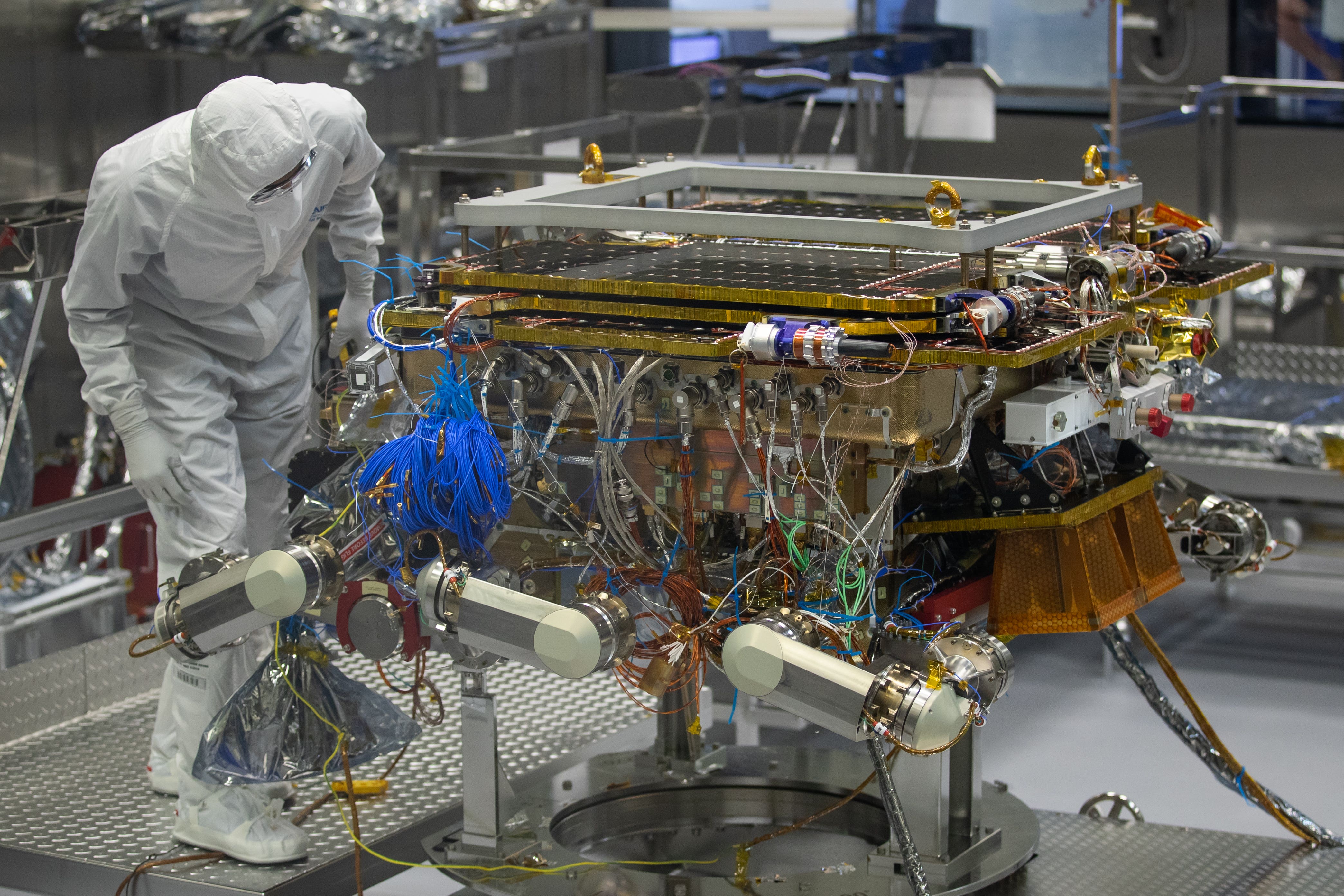UK to build new instrument to aid search for life on Mars
UK Space Agency will provide an additional £10.7 million to replace a Russian-made instrument on the Rosalind Franklin rover.

Your support helps us to tell the story
From reproductive rights to climate change to Big Tech, The Independent is on the ground when the story is developing. Whether it's investigating the financials of Elon Musk's pro-Trump PAC or producing our latest documentary, 'The A Word', which shines a light on the American women fighting for reproductive rights, we know how important it is to parse out the facts from the messaging.
At such a critical moment in US history, we need reporters on the ground. Your donation allows us to keep sending journalists to speak to both sides of the story.
The Independent is trusted by Americans across the entire political spectrum. And unlike many other quality news outlets, we choose not to lock Americans out of our reporting and analysis with paywalls. We believe quality journalism should be available to everyone, paid for by those who can afford it.
Your support makes all the difference.UK researchers will create a new instrument as part of a European mission to search for life on Mars.
The device, named Enfys – which means “rainbow” in Welsh, will replace a Russian-made instrument on the Rosalind Franklin rover.
The European Space Agency spacecraft was due to launch last year but collaboration with Russia’s space agency stopped following the Ukraine invasion.
With £10.7 million additional funding from the UK Space Agency, a team led by the University of Aberystwyth in Wales will build the instrument that will identify areas on Mars with “high potential of evidence of life”.
The rover will collect samples by drilling around two metres below surface and analyse them in an onboard laboratory.
'Is there life on Mars?' That has been asked by mankind for generations and this UK investment is an exciting opportunity to enhance our understanding of the Red Planet and perhaps finally answer that very question
Science, research and innovation minister Andrew Griffith said: “Is there life on Mars?’
“That has been asked by mankind for generations and this UK investment is an exciting opportunity to enhance our understanding of the red planet and perhaps finally answer that very question.”
Other UK institutions involved in the project include the University of Leicester, Bradford University, University College London’s (UCL) Mullard Space Science Laboratory and the Science and Technology Facilities Council’s Rutherford Appleton Laboratory.
Dr Paul Bate, chief executive of the UK Space Agency, said: “The UK-built Rosalind Franklin rover is a truly world-leading piece of technology at the frontier of space exploration.
“It is fantastic that experts from the UK can also provide a key instrument for this mission, using UK Space Agency funding.
“As well as boosting world-class UK space technology to further our understanding of Mars and its potential to host life, this extra funding will strengthen collaboration across the fast-growing UK space sector and economy.”
The £10m rover, which was built by Airbus in Stevenage, is due to launch in 2028.